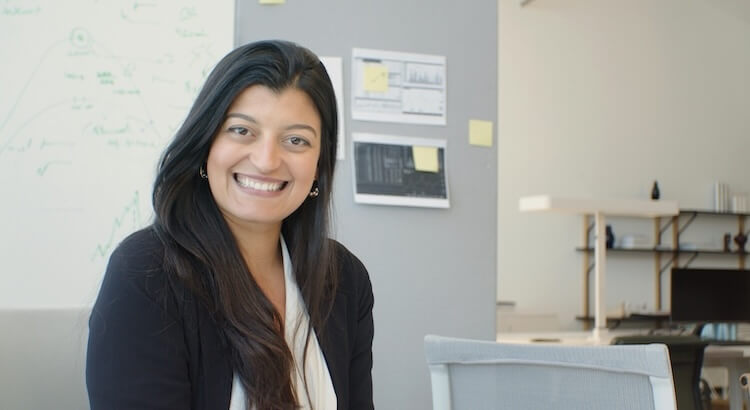Dissertation Transcription Services: A Complete Guide for Students
During the final year of a Master’s or Ph.D. program, writing a dissertation or thesis is a key requirement. This task involves researching a specific topic for several years and gathering large amounts of data. Among the resources used are interviews, lectures, seminars, and group discussions. These sources often exist as audio or video files and add depth and authenticity to your academic research.
Transcribing these audio and video files accurately is essential for creating a thorough and credible dissertation. In this guide, you'll learn how dissertation transcription services can make the final stage of your academic journey easier and less stressful.
Understanding Dissertation Interview Transcription
Many dissertations rely on interviews, group discussions, and classroom lectures for supporting evidence. These recordings serve as proof of extensive research and add valuable insights to your thesis.
- Audio files may include one-on-one interviews, focus groups, and conference presentations.
- These recordings are often attached as digital files when submitting your dissertation.
- Including transcripts ensures that readers and examiners can easily access and reference important details.
However, transcribing lengthy, technical, or jargon-heavy recordings is often tedious and time-consuming. Manually replaying segments and editing for clarity can take hours, leaving students with less time to write and refine their dissertations.
When Should You Outsource Transcription Services?
There are situations when handling transcription yourself is impractical. Here are some scenarios where outsourcing to a professional service becomes the best choice:
- Group discussions with overlapping voices and scattered ideas are challenging to transcribe without help.
- Long or multiple classroom lecture recordings can quickly overwhelm your schedule.
- Need for fast turnaround, especially with pending interviews and limited time for research and writing.
- Verbatim accuracy is crucial for legal or research defense purposes.
- Students with limited transcription experience risk mishearing or misrepresenting important speech.
Transcription services do more than just convert speech to text. They can also create accurate notes, analyze video files, and capture nonverbal cues when needed. For students facing tight deadlines or large audio volumes, expert transcription ensures accuracy and saves precious time.
How to Prepare for Academic Transcription
Proper preparation before recording interviews or lectures can improve the final transcription outcome. Here are steps every student should follow:
- Test Equipment: Check your microphone, recorder, and batteries before the session to avoid poor audio quality or technical failures.
- Choose Quality Recording Tools: Invest in a good microphone and recorder, especially if interviewing in noisy environments. Smartphones are suitable only in quiet locations.
- Inform Interviewees: Tell participants ahead of time that you'll record the session and explain your data use. This ensures cooperation and builds trust.
These simple steps can prevent errors and save effort during the transcription process.
Deciding Between Human and Automated Transcription Services
Once data collection is done, students face a key decision: Should you choose automated transcription or opt for human-based services?
Automated Transcription Pros and Cons
- Uses AI to convert speech to text in minutes.
- Ideal for clear audio with minimal background noise.
- Accuracy rates usually range from 80–90% (Statista, 2023).
- Editing may be needed for technical terms, heavy slang, or overlapping speech.
- Cost-effective and fast for simple tasks.
Human Transcription Pros and Cons
- Managed by skilled professionals for up to 99% accuracy (Transcription Certification Institute, 2022).
- Handles complex audio, accents, and industry jargon better.
- Provides options for special formatting or language needs.
- Takes longer and may cost more than automated solutions.
Consider your budget, deadline, and desired accuracy when making your choice. For quick, non-critical tasks, automated services may suffice. For research-level or technical work, human transcription ensures quality.
Choosing the Right Type of Transcription
Deciding on the right transcription style depends on your research and how you’ll use the text.
- Full Verbatim: Captures every sound, including filler words, pauses, and stutters.
- Clean Verbatim: Only includes main speech, removing unnecessary sounds and fillers for easy reading.
- Summary Notes: Condenses the main ideas into a shorter, readable format—ideal for quick reference or broad overviews.
Most academic dissertations use clean verbatim for clarity and professionalism.
What to Look for When Hiring a Transcription Service
Not all transcription services offer the same level of quality or security. Consider these key criteria when selecting a provider:
- Affordable Pricing: Students should compare transcription pricing to find a service that fits their budget.
- Confidentiality: Ensure your data is secure and private by confirming a clear safety or non-disclosure policy.
- Reliable Technology: Providers who use the latest tools can often ensure more accurate transcripts and quicker turnarounds.
- Professional Support: Responsive customer service is essential in case of technical issues or revision needs.
It is also wise to check for proofreading or additional support services, like transcription proofreading, closed captioning, or subtitling for multimedia dissertations.
Get Your Dissertation on Track
A well-transcribed dissertation interview or lecture contributes to better research outcomes. By planning ahead, using reliable equipment, and selecting the right transcription service, you can focus on your analysis and writing, not just on transcription.
GoTranscript specializes in academic transcription, providing fast, accurate results at student-friendly prices. Whether you need automation for speed, proofreading for accuracy, or translation services for international interviews, GoTranscript offers a range of reliable solutions. Let professional transcribers handle your audio files while you focus on your academic success.



















 Verified Order
Verified Order